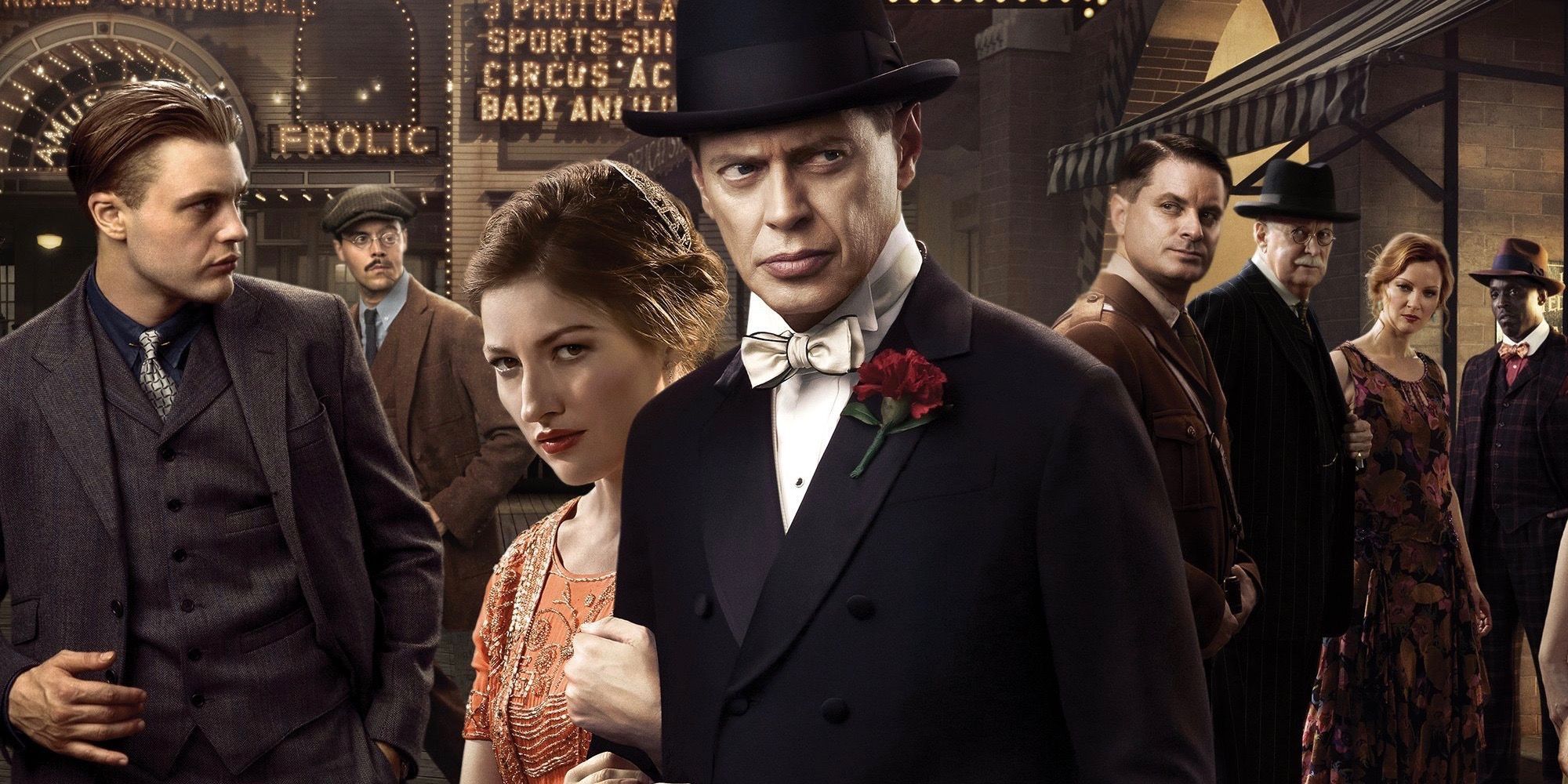Martin Scorsese, at the peak of his career, showcased his brilliance once again with the debut episode of HBO’s gripping drama series, Boardwalk Empire. Penned by Terrence Winter, the future writer of The Wolf of Wall Street, the pilot episode of this crime show introduced viewers to an anti-hero in the league of Henry Hill from Goodfellas, portrayed by Ray Liotta. Steve Buscemi’s portrayal of Nucky Thompson was a perfect blend of charm and ruthlessness, but it was this very brutality that became a stumbling block for the series as it progressed. Surprisingly, the primary antagonists failed to make a significant impact, until Bobby Cannavale’s performance as the ruthless Gyp Roseti in the third season finally gave the audience a character to fear more than the protagonist.
Collaborating with Boardwalk Empire at the perfect time, Cannavale injected the narrative with freshness. The initial season predominantly focused on Nucky’s rise to power as the treasurer of Atlantic City and his involvement in its political and criminal activities. Although his romantic connections with mistress-turned-wife Margaret and his guidance of Irish Republican Army soldier Owen Sleater showed glimpses of his sympathetic side, there was never any doubt about Nucky’s actions if crossed. By the end of the second season, Nucky had transformed from an anti-hero to an outright villain, a transition that needed addressing if Boardwalk Empire was to evolve into a true Shakespearean tragedy.
This issue is not unique to Boardwalk Empire; other esteemed television series like Breaking Bad managed to momentarily distract viewers from the villainous actions of Walter White by focusing on his rival, Gus Fring. Boardwalk Empire followed a similar strategy by introducing Cannavale’s character. Gyp was a completely different breed of criminal, unrestrained by authority or loyalty. While Nucky had to navigate through alliances, maintain order in his personal life, and fulfill his political duties, Gyp was purely focused on his own interests. Every interaction involving Gyp was accompanied by violence, accentuating Cannavale’s towering presence in comparison to Buscemi’s Nucky, who appeared vulnerable in the face of a schoolyard bully. As Cannavale is often underserved in comedic roles like Ant-Man, it was refreshing to witness his talents being fully utilized.
Unlike Gyp, who lacked any redeeming qualities, Jimmy Darmody, Nucky’s former protege, failed to emerge as a compelling villain. Both characters were repugnant, self-centered men who sought attention. Darmody would have simply become another version of Nucky had he survived past the second season finale. Gyp, on the other hand, behaved like a savage animal, testing Nucky in a different way. There was no room for reasoning or justification with a villain who simply didn’t care. It also became apparent that Gyp did not adhere to the civil rules of gangster conflicts that Nucky was accustomed to. Gaining political capital with the elite upper class of Atlantic City was inconsequential to Gyp; he solely pursued gains for his operations. This shift transformed Boardwalk Empire from a historical drama into a worthy successor to The Sopranos, as it had aspired to be.
The heightened stakes in the third season of Boardwalk Empire also led to some of its most poignant moments. The death of Owen, caused by the ongoing conflict between Nucky and Gyp, was a shocking and emotionally charged development. While the show had frequently crossed the line of good taste with its violence, none of the beheadings or torture sequences compared to the heart-wrenching sound of Margaret’s grief upon realizing the consequences of her affair. Owen’s death altered the tone of the series and compelled all the characters to reevaluate their choices. Nucky had to confront his rage towards Margaret’s infidelity and his guilt for neglecting her, ultimately forcing him to question if Margaret had gained anything substantial from their experiences together or if she was just another vulnerable woman needing protection in the next gangster war.
Regrettably, Boardwalk Empire’s creative zenith came to an end after Gyp’s demise. Despite Jeffrey Wright’s excellent portrayal of Dr. Valentin Narcisse in the fourth season, the character felt out of place in the show. While Narcisse was an intriguing historical figure due to his views on Black nationalism, he served as an intellectual foil to Nucky in a series torn between being a political drama and an exhilarating crime epic. By the fifth season, the absence of an antagonist like Gyp led to an overwhelming amount of exposition, making the show feel like it was losing its grip. It takes an exceptional actor to elevate a series and maximize its potential, and Cannavale beautifully accomplished that with Boardwalk Empire. Although his contribution fixed the show’s antagonist problem temporarily, it transformed the series from just another historical drama into one of the finest crime epics of its time.
Denial of responsibility! TechCodex is an automatic aggregator of the all world’s media. In each content, the hyperlink to the primary source is specified. All trademarks belong to their rightful owners, and all materials to their authors. For any complaint, please reach us at – [email protected]. We will take necessary action within 24 hours.
Khushi Patel is a science fiction author who lives in Austin, Texas. She has published three novels, and her work has been praised for its originality and imagination. Khushi is a graduate of Rice University, and she has worked as a software engineer. She is a member of the Science Fiction Writers of America, and her books have been nominated for several awards.


